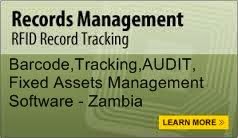For years it’s seemed that while everyone acknowledges the importance of merchant account services, nobody except possibly merchant service providers- actually boldly talk about it. Part of this is because most bloggers hate to read on something they don’t really understand and are reluctant to comment.
Home » All posts
Merchant Accounts-Why You Need One
Will Zambia’s Economic Zone tick like China?
113 Accounting firms You Should Know
Do you search everywhere for firms offering accounting services in Zambia? Start looking in the right place for professional accounting firms. Today, I want to show you a list of 113 professional firms I recently stumbled upon. These firms provide accounting and audit services at a fee.
I will first start with the big four names in the accounting industry, these are members of the global network of the big4 accounting firms in the world before I move to the other 116 accounting firms.
Deloitte and Touché has offices on the second floor of Kafue house along chachacha road in Lusaka and their Kitwe office is at fookes house Pramo Avenue.
Pricewaterhouse coopers is among the big four accounting firms and has offices in Lusaka, Kitwe and Ndola. Their Lusaka office is on the 7th floor NSCB building north end on Cairo road while the Kitwe office is at Mukuba pension house along President Avenue and their Ndola office is on the 4th floor BOZ annex.
Ernest and Young is also ranked among the big4 accounting firms. They have offices in Zambia Located in Lusaka and Kitwe. Their Lusaka office is on 1st floor Development house while their Kitwe offices 2nd floor mukuba pension house at the corner of Kantanta Street and President Avenue.
KPMG is another global network off professional firms that provide audit, advisory and tax services in a number of countries. In Zambia, their offices are on Nkwanzi house along chachacha road in Lusaka, 2nd floor Canada house along President Avenue in Ndola and on 1st floor mutondo house in Kitwe.
Other accounting firms I know include Grant Thornton, Moores Roland, BDO Spencer steward Zambia situated at Bata boulevard show grounds and many more.
Here is the list of 113 professional accounting firms including 22 non audit practicing firms their telephone numbers and principle contact persons.
If your favorite accounting firm is not listed, feel free to let others know about it by leaving your comment.
MSEs Reporting Standard -Why Know it?
Recently, I had a conversation with a fellow accountant and it struck me that he was ignorant about this launch of the three tier financial reporting framework in Zambia. I think this is common nowadays as more business people are glued to social networks like facebook and political news.
If you found this information helpful, don't hesitate to leave your comment.
The Most Critical Tax Issues in 2011
Great thinkers have given wise counsel on the need to periodically look back at issues, to re look at our achievements, our shortcomings and then move forward with confidence.
Make Money As a Software Reseller
Frankly, the days of being able to set up successful reseller business purely on the basis of re-selling accounting software is slowly fading away, but a few computer consultants I know, are still profiting handsomely from diversifying into new revenue streams such as installation, customization, training and ongoing service.
Software Resellers provide valuable training
Where to Get Genuine Software Help
As you probably know, a great way to achieve any goal in life is to look at people who already accomplished similar things, and then analyze how they did, learning as many lessons as possible
If you want to get the most from your accounting software, therefore, you should look for help from other software users that already are using it successfully, learning from their success story.
But where do you find other software users to help you with your problems?
That is where accountant software help forums come into play. Software help forums are a great place to start if you need accounting support. This is the only genuine place where software users can get help from other users. Many accountants already use help forums and more are moving into help forums every day. There you will find help from help desk staff, accountants and other experts.
One very good example is pastel software accountants help forum. Here you will find software discussion boards, users are free to discuss freely on this forum.
Admittedly, some of the software help offered in some help forums is not helpful, but i still find most software help forums to be very resourceful.
In fact, some of this help is given by very experienced professional accounting software experts willing to share their experiences and knowledge absolutely for free in order to help other users.
In other words, software help forums are a great source of information if you are willing to analyze a particular accounting program: the popularity, some of the problems users face and the amount of support provided online.
The big lesson I want you to learn is: wherever there is an accountant help forum, there is a genuine opportunity to learn and even help you get the most out of your accounting system.






